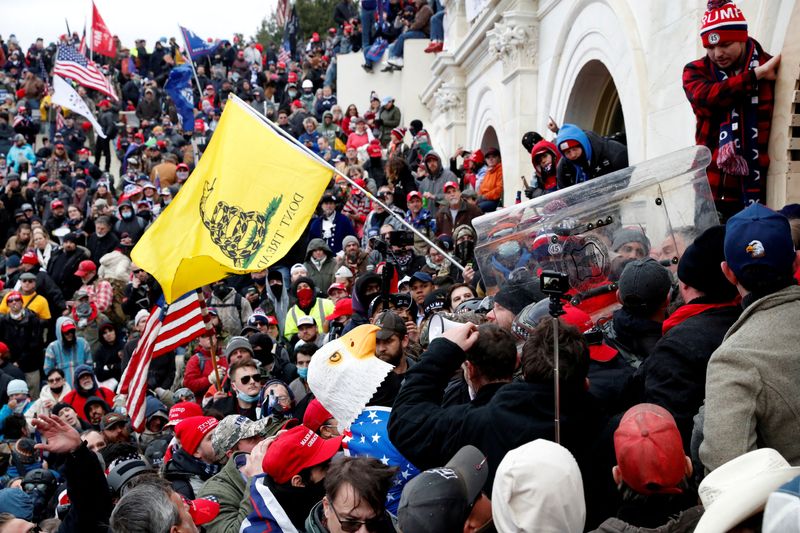WASHINGTON (Reuters) - The U.S. House probe of the deadly assault on the Capitol will share with federal prosecutors any evidence of potential crimes aimed at pushing phony Republican electors in states won by Democratic President Joe Biden, the committee's chairman said on Sunday.
The House of Representatives Select Committee on Jan. 6 is looking for evidence that Republican officials in some states sought to nominate their own slates of electors, rather than those chosen by voters in 2020, panel chairman Representative Bernie Thompson told CBS News.
Republicans had publicly pressured then-Vice President Mike Pence to reject official slates of electors to allow Republican state lawmakers to offer an alternate group of electors backing then-President Donald Trump. Pence rejected that plea.
"If we ... determine specifically individuals who did this, we will make the referral to the Justice Department," Thompson said in an interview on CBS' "Face the Nation. "We are concerned that documents have been filed saying they were individuals responsible for conducting and certifying elections and they're not. And when you falsify documents, in most instances, that's a criminal act."
Asked if he knew who orchestrated the effort to keep Pence from certifying Trump's loss, Thompson said the committee had received related information from documents recently handed over by the National Archives and was reviewing them.
Thousands of Trump supporters stormed the Capitol on Jan. 6, 2021, after he repeated to a nearby rally his false claims that his defeat was the result of widespread fraud.
CNN reported last week that officials on Trump's re-election campaign, led by his lawyer Rudy Giuliani, oversaw efforts to put forward illegitimate electors from seven states that the former president lost.
The Jan. 6 panel last week subpoenaed Giuliani along with two other Trump lawyers.
Thompson also said the panel was concerned about a draft Trump executive order, reported by Politico, that would have called on the U.S. military to seize election equipment, although the order was never issued.
"Just the draft itself is reason enough to believe it was being proposed," Thompson told CBS. "If you are using the military to potentially seize voting machines, even though it's a discussion the public needs to know. We've never had that before."

While the committee can refer possible crimes to the Justice Department, it is up to the department to decide whether to charge anyone.
Thompson said the panel had already talked to Trump's former attorney general, Bill Barr, as well as people from the U.S. Department of Defense.